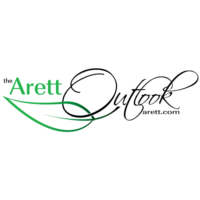Organic Lawn Care: Is It Right For You?
 We all admire a beautiful lawn. It can enhance your home’s curb appeal, provide a soft, resilient play area for your family, and even increase the value of your home. But too many people often rely on lawn care programs that apply broad, and often unnecessary, applications of conventional fertilizers, pesticides and herbicides that are potentially harmful to children, pets and the environment.
We all admire a beautiful lawn. It can enhance your home’s curb appeal, provide a soft, resilient play area for your family, and even increase the value of your home. But too many people often rely on lawn care programs that apply broad, and often unnecessary, applications of conventional fertilizers, pesticides and herbicides that are potentially harmful to children, pets and the environment.
The U.S. EPA says that Americans apply 90 million pounds of pesticides every year in order to grow lush green lawns. A better approach is organic lawn care, which maintains the lawn without these potentially harmful materials.
Organic lawn care focuses on growing a healthy lawn which is the best protection against weeds, insects and diseases. To have a healthy lawn, you need a healthy soil. Healthy soils are crumbly, brown, and alive with earthworms and beneficial microbes. Healthy soils let grass roots grow deep, making them more resistant to drought and stress.
To have a healthy soil, you need to avoid the use of pesticides and synthetic fertilizers and follow certain guidelines that are outlined in this article. One of the keys is to feed your lawn with natural and organic fertilizers that not only help to grow a beautiful, green lawn, but also one that is safe for kids and pets.
One of the first questions people ask about organic lawn care is how will I control weeds? Did you know that a lawn with about 15% weeds can look practically weed-free to the average observer? A healthy lawn will grow thick deep roots that will help keep even the toughest weeds from sprouting. It is always best to dig or pull out your weeds on a regular basis so they do not over populate your lawn.
If weeds are a big problem for your lawn, you may want to apply Espoma Weed Preventer in the spring, which is made from corn gluten meal. Corn gluten helps prevent weeds from germinating, and it also feeds the grass, making it stronger and more resistant to weeds.
People often mistake quick greening after applying fertilizer with healthy grass. However, synthetic fertilizers have high percentages of water soluble nitrogen, which provides a quick jolt to your lawn much like espresso or an energy drink would provide to people. Eventually, both have to come down off the “high.” This constant up and down can actually stress your lawn and lead to more weeds and disease. Most synthetics provide more readily available nitrogen than a lawn can actually use which means the nitrogen can leach into the ground, into nearby water ways like streams, rivers, ponds, lakes and bays. When you use an organic fertilizer, the fertilizer releases to the plant much slower and actually feeds the plant as it needs it.
Another common concern is cost; people think organic lawn care must be expensive. However, According to a 2010 study by Environmental Grass Roots Education, once established, an organic lawn program can result in savings of more than 25% compared to a conventional lawn care program. Initial costs may be more than a conventional lawn care program as one transitions from using synthetic fertilizers and chemical herbicides. Efforts such as topdressing with compost and relatively heavy fertilizer applications become less frequent or are eliminated after several years, or when the soil biology is sufficient enough to cycle nutrients and maintain adequate fertility on its own.
Organic lawn care is not difficult or expensive and can deliver a wonderful green lawn that is safe for kids and pets to romp and roll.
________________________________________________________

Sell More Espoma With E-mail Marketing
E-mail marketing is a proven way to engage with your customers and keep them coming back to your store. But who has time to research the content that that drives these campaigns? Now Espoma and Arett Sales have made it easy with professional content and images right at your fingertips. Contact your Arett salesperson today to learn how you can get started with this low cost and effective sales marketing tool.
